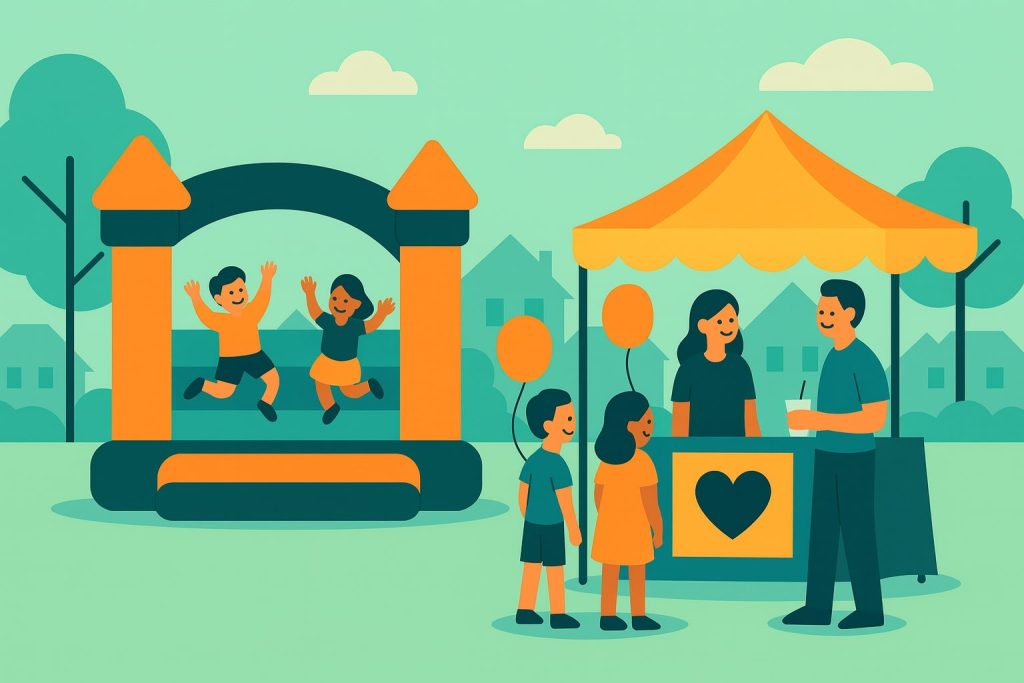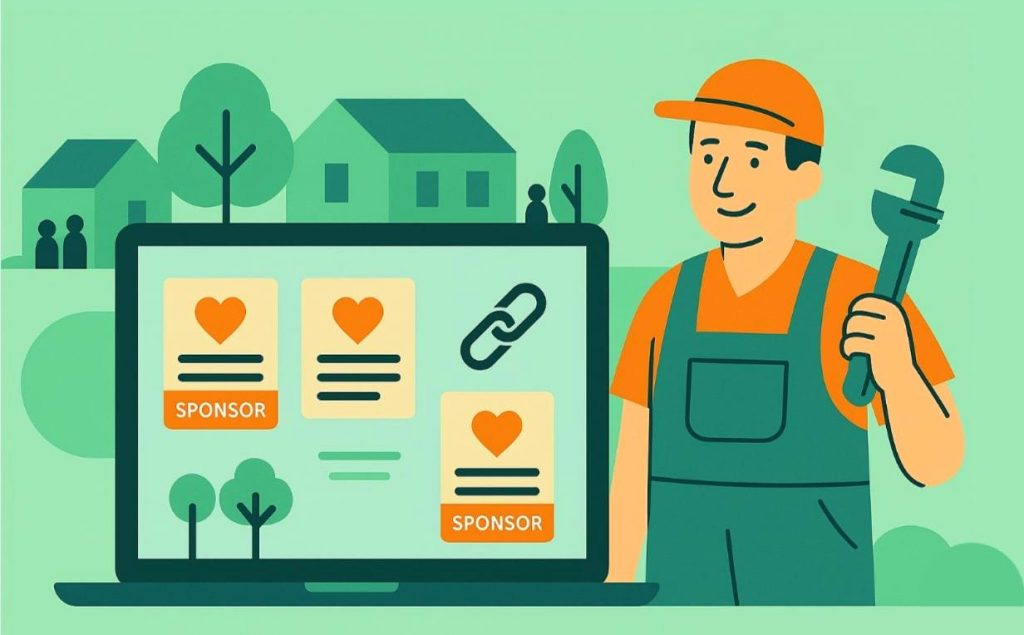The Zip: Episode 33
So often, when people ask what I do, even people who work in business or technology, I feel like… it can be very hard to explain the big picture of working in search and digital. Eight years ago, online marketing was highly specialized – you were a social media person, or you were an SEO person, or maybe you created banner ads. So any one marketer could be like “I do X.” In my case, back then, it was “I run brands’ social media pages.” But that’s not so much the case anymore – most online marketing specialties are converging. “SEO” conferences have sessions that discuss video creation and social media. Content marketers talk about optimizing for search. People who focus on advertising care about landing pages and user experience.
And when it comes to local marketing, search has a branding component as well. It’s not just about knowing a name; it’s also about associating a particular brand with your neighborhood, even if they are a national business. Depending on budget, target demographic and existing resources – creating this local branding campaign could look very different. It could be on the ground, it could be digital, it could be events, it could be some sort of hybrid experience involving TV ads or direct mail. The lines between “you’re this kind of marketer or THAT kind of marketer” are increasingly blurred. Last week, with Gregg Stewart of Fifteen Miles, we talked about how big brands can ‘go local.’ And we’ll continue, and extend that conversation with today’s guest, Heather Physioc. Heather is a brilliant strategist, who’s worked for large, international enterprise businesses as well as small businesses.
And this conversation really emphasizes the diverse skill set it takes to succeed in digital. Heather originally went to school with an eye on a journalism career. And I think that’s not an uncommon trend. It’s the same instinct to learn the lay of the land, to highlight need-to-know information for others, and to share information in a way that others can easily digest it – that makes a good digital marketer. We’re no longer silo-ed, which means each marketer has tons of tools at her disposal to decide what makes sense for a particular brand in a particular city, for a particular campaign.
Heather and I will talk about her journey as an information gatherer, from her startup agency Tentacle Inbound – I love that name – to her current role at as director of organic search at VML, as well as her strategies for helping international brands market themselves in various cities around the world.
So if you’re listening and you’re still wondering what it is that I do all day long (Hi Mom). Or if you’re eager to understand the future of search, and the kind of brain that will be leading digital teams in the coming years, this conversation will give you a good idea.
Welcome to The Zip.
Megan:
The more I dug into your expertise and your background, I was like, oh my gosh. I have so much to ask her about, but I will try to keep it to a short amount of time, like half-hour. Thank you so much for taking the time to talk to me today.

Heather:
My pleasure. Let’s do it.
Megan:
Yeah. I guess when you started out, you had a background or you graduated from journalism school. What motivated you to enter journalism school? Then, how did you transition from the journalistic side of things to end up doing advertising?
Heather:
Great question, and actually kind of one of my favorite stories. I actually have always been a writer or seen myself as a journalist ever since I was putting together those little Kinko’s copied printed newsletter in my fourth grade class about who lost a tooth on the playground that week. My whole life I grew up thinking I was going to be a writer of some kind, or work for the newspaper. When I went onto college, the Missouri Journalism School has many different sequences in it. Newspaper, magazine, advertising, etc. I went to J-School thinking I’m going to write to newspapers. Then, I realized that was a dying industry, I hate to say, and I was going to have a lot more limited career options. Then, I thought I was going to be a magazine journalist because I had run this online music magazine for years before that. Even then, I felt like this really wasn’t the right fit. So, I went into advertising instead.
There was a heavy emphasis on journalism in the J-School, of course, but there’s also what we call the Missouri Method, where you really get to learn your skills hands-on, working on real clients. I got all this great exposure to advertising and really fell in love with it. It was something I was pretty good at. The one downside to the standard college curriculum is that they basically, at least back in my day, trained you that you could either be an account executive or you could be a creative. That was about it. Turns out, I was a terrible designer, average at best. Even as a writer, was not the best advertising copywriter. As an account executive, it just wasn’t the right fit for me. When I graduated, I was like, okay, I can do things. I can work in an ad agency, and my first job out of college was this tiny agency in my college town, and I was a personal assistant/secretary/copywriter/project manager.
Megan:
Slash everything.
Heather:
Yeah. It was like, yeah, we’ll give you a job, but you’re going to need to do 16 different things to work here. I did, and then back then search hadn’t really blown up yet. Somebody actually asked me, I heard I was supposed to put keywords on my website. Can you figure out what that means and what they are? That day, I went and figured it out, and I realized this was that perfect blend of digital and technology that I loved and was good at, but also the writing part, the language and caring about how people think and how they consume information. This was that perfect hybrid that no one told me existed. From there, I kind of just tripped and fell into it and found the job that had always been waiting for me.
Megan:
Yeah. I think it’s so interesting when you get into the search community, you meet all these people who like you were saying are a blend of creative and nerd and good with clients. I don’t even think anyone probably in an agency should be sectioned off like, you’re this or, you’re that, but it is this fun combination of a lot of different things.
Heather:
Yeah. It’s a rare treat to find somebody who’s that jack of all trades, but back then it used to be bad to be a jack of all trades. We used to tell people, you need to pick something. I think search is that one job where you don’t have to pick. You have to be technical minded. You don’t have to be a developer, but you have to be savvy. Savvy enough to know what’s going on under the hood. You have to be a good writer. You have to have a strong command of language and how people think and consume information. You have to be a good relationship builder, because search has so many dependencies and development and UX, analytics, and insights. It’s all over the board. We have to be good with clients as much as we are with internal clients and stakeholders. You have to be this lifelong learner as well, because nothing that we do is going to stay the same for long, and we need those adaptable people who can stay on the train.
Megan:
Yeah, and I feel like you need to be somewhat of an ideas person, too, because I feel like that’s the fun part about the search industry, too. It’s like getting creative with, yes, we need to do a campaign, but we don’t want to do the same thing as everyone else. How are we going to do something unique and different? I feel like that’s a cool part of it as well. How do you think that the journalism background has helped your SEO skillset?
Heather:
Great question. The writing, of course, is the base level. Understanding language, how people write, how people read, how people search, how people consume news and information and stories is so important, which leads me to the next big thing is storytelling. We had to know what kinds of information or events or news made headlines and what people would be interested in reading and how we could package and deliver that content in a way that would really resonate with those people. Basically, how could we take a lot of information and synthesize it so that it’s going to land with the audience, be effective, and communicate the information we need to communicate? At its very core, that’s what search really is. We’re not IT for websites. We’re information gatherers, information sharers. It’s not complicated. It’s very simple how they’re related.
Megan:
Yeah. I feel like nowadays, oddly, there’s becoming certain connections between—as you said the journalism industry is going through a lot of changes, but I feel like the people that are sticking around and doing innovative things are actually a lot of times working with agencies or working with brands. It’s kind of converging back, because I think brands and agencies are realizing that storytelling is so important.
Heather:
We’re thinking about it a lot as these people in the traditional journalism industry, maybe their job options are more limited these days since everybody’s going online, but they have a very core set of skills that I think a lot of agencies struggle to build within their own walls. Especially when you’re at the creative shops where you’re focused on giant campaign creative. Very few pieces of content, but amazing pieces of content. When really, with search, we need a sustainable, continuous content creation model. Those journalists, they’re the whole package. There’s the editorial thinking. They have the ability to gather information, synthesize it, write it. A lot of times produce it. How many local TV stations can put a camera on their shoulder and go on site and shoot their own story? They understand what works. They understand editing. They understand the publication process. They can do it at scale, at speed. These people are very employable if you’re smart.
Megan:
Yeah. I agree, and I feel like that actually dovetails. From seeing your presentation at MozCon local, I can definitely see the storytelling influence in your philosophy. You spoke a lot about brand pages, city pages for brands and how storytelling works really well on those pages. Do you think about journalism in that way, too? Working with local storytellers when you’re building out local pages for brands?
Heather:
Absolutely. I’m super pumped that you caught that. The idea behind the MozCon local city page from top to bottom, we weren’t just telling the brand story and pushing out whatever the brand wants to say. We are uncovering what the community story is and telling it through the lens of our brand. I think that the only way you’re really going to get truly unique, valuable, rich content that no one else can or no one else does produce is to tell stories, to find the good stories and tell them. Of course, you still have that brand layer. It’s still your perspective and your voice, but I’ll say this until I die. The real people who are living these stories will tell your brand’s story better than your brand ever will.
Megan:
Right, yeah. Have you worked on campaigns where you’re—I feel like one of the hard parts about that, and this is something I’ve thought a lot about, too, because I love the idea of storytelling as part of a brand campaign, the execution of that. Kind of like, okay, we have 250 cities that we’re trying to tell local stories for. Have you been able to do that at scale? What are some tips you would give for executing something like that?
Heather:
To make sure I understand the question is, how do you tell stories at scale in lots of content, right?
Megan:
Yes.
Heather:
I think that is a complicated question. That’s a loaded question, and I think every agency ever is probably trying to figure that out right now. I would say, I don’t have it figured it out yet. I’m working on my Master’s degree, so I’m doing my thesis right now. One thing that’s been very helpful to me is going to interview all the different practice heads, realizing that search is not the center of the universe and that there are many different perspectives on how content and stories could be told. I went and talked to our analytics practice and how they make data tell a story. I went to our PR practice to ask, how do you know what something is a story, and how do you share that with people online? I went to the media practice, paid search, user experience design, our planning and brand strategy department, our creative department who does do the big campaign creative. I think when you piece all of that together, all these different perspectives, you start to get a clearer idea of what the pain points are, and every agency is going to be different on what those pain points are.
I think that step is my number one step. Do that step where you go out and you talk to all the stakeholders and figure out what’s working, what isn’t, what are common complaints in the process or the system? Then, we build the system. That’s what we’re doing now, is mapping out what is the ideal process for content creation at scale? And to make sure that it has the amount and level of quality with every piece that goes out, even when it’s not a giant campaign.
Megan:
Yeah. I like that. It’s getting everyone’s perspective on it and then building something unique. I agree. It’s something that we think about as ZipSprout. I think it’s something that probably everyone’s thinking about. It’s like, oh my gosh. There is so much that you can do with storytelling and figuring out the best way to leverage that while keeping quality standards high.
One other point you brought up at MozCon local was that national or international businesses that are maybe online-only but service international locations, they might not need city pages for every single little entity or location that they serve. I think a lot of businesses that I’ve seen sometimes, over focus on having city pages for every little neighborhood and nook and cranny for two reasons. First of all, they want everyone to know, hey, we’re here, even if you’re a small town or something, but also, they don’t want their competitors to outrank them in certain places. How would you soothe those fears for a company if you’re advising them to create a limited number of local city pages?
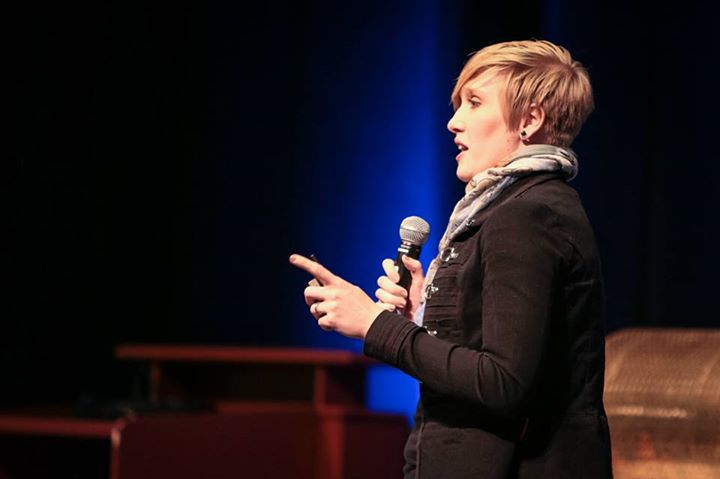
Heather:
Sure. I hesitate to speak for the smaller local businesses just because I don’t work in that space so much anymore. That methodology may still work today. It may still be necessary to really win in search today, but I think long-term—basically, as a human being, I think, wow. There’s really got to be a better way. I think search engines like Google being the most sophisticated search engine in the world, they’re going to figure that out at some point, too. Eventually, this really will stop working, but for now it works and I get it. It’s definitely not my preferred methodology, but I don’t do local search anymore. I do global. When I do think about these big, global brands and brands that are only online and don’t necessarily have brick-and-mortar locations, I think it’s especially obvious, and pardon the word, but a little cheap to try and build a thin, weak, duplicative page for every neighborhood on the block. I just don’t think it makes sense at an enterprise level.
On the other hand, when we’re focusing in major cities or areas that really matter to the brand, whether it’s because of current or future sales potential or current or future website traffic potential or larger business goals or brand launches in certain cities. Whatever the case, being smart and strategic about which cities we choose to create content for, I think will free up the resources, time, energy, money that it’s going to take to pour everything into these few pages we create, and create something truly exceptional that is difficult for our competitors to replicate.
I tell clients frequently, yes, content is so, so, so important. But we don’t want to create content just to create content, because it’s the cool buzzword on the street. The Internet is full of it, with bad content that doesn’t perform. What we need is less content, but better content. Not just we, as in the client and agency, but the collective we. The entire world needs less but better content. It’s a better investment.
Megan:
Yeah. I tend to agree with you. I feel like what a lot of brands are doing, and I feel like it’s more what people are doing, it’s more of a trend that it isn’t. You see just the complete proliferation of city pages everywhere, but it does seem like in 10 years it’ll be something like, can you believe they used to do that? That was so much that they used to do. I don’t know what the replacements will be, or what it will be like. Why didn’t they just do X? I tend to agree that it does seem like one of the things like you were talking about early in your career that, oh, we just put keywords on the page and now we scoff at that type of tactic. I think there will be a better way to let people know that you operate in a place besides having to have a page for it, even though I’m not always sure what that’ll be.
Heather:
Yeah. I have no idea. My brain is not that big.
Megan:
That’s why, going to MozCon local and just seeing so many of the—I felt like I started to see glimpses of the future of search in ways that I had not yet seen in, and it was so exciting. From your discussion, from some other people, Cindy Krum’s discussion, just seeing, oh my God. This is where we’re going. We might not even have URLs in the future. Just that kind of stuff is really exciting.
Heather:
Yeah. That was a mind-blowing talk from Cindy, and she’s so right. I fully believe her. That was a really sound argument that pages aren’t necessarily necessary in the future, and we need to prepare for that. What’s going to happen to all these local businesses with thousands of neighborhood-level pages when that day comes? Then what are they going to do? They put all their eggs in that basket. They’re hosed.
Megan:
Yeah. You said you don’t work as much in local anymore, but I know you have founded your own side business which is a small marketing agency. Is that something that you’re still involved in? I’d love to hear a bit about Tentacle and how it came about.
Heather:
Well, Tentacle Inbound, it is my small startup agency from many moons ago, and it has been focused exclusively on small and medium sized businesses and helping to empower those startups and small business owners to take more ownership of their digital marketing. I founded it, totally out of desire to get better at my craft and make a dollar to two while doing it, because I’m passionate about small business, especially women-owned small businesses, which most of the clients are. I believe that, this sounds so old-school, but when you pay for something, the person you are paying has a moral obligation to deliver on what they’ve been paid for. I think that so many small business owners have been taken advantage of by these marketers who keep what they do in a black box as if they’re trying to protect this secret knowledge and keep the clients from going off and doing it themselves. Sometimes we do it under the guise of protecting the clients from themselves, but I just don’t believe that.
I believe that clients are smart and savvy people, and they’re just as capable of learning as we are. I believe that when you educate them and when you empower them to understand what their dollars are doing and how these things work, they will be better relationships. They will be more long-term and profitable relationships. When you basically build your business around service and treating people with dignity and respect and empowering them to do well, they will stay with you. All that to say, that’s Tentacle. That’s the small business mentality.
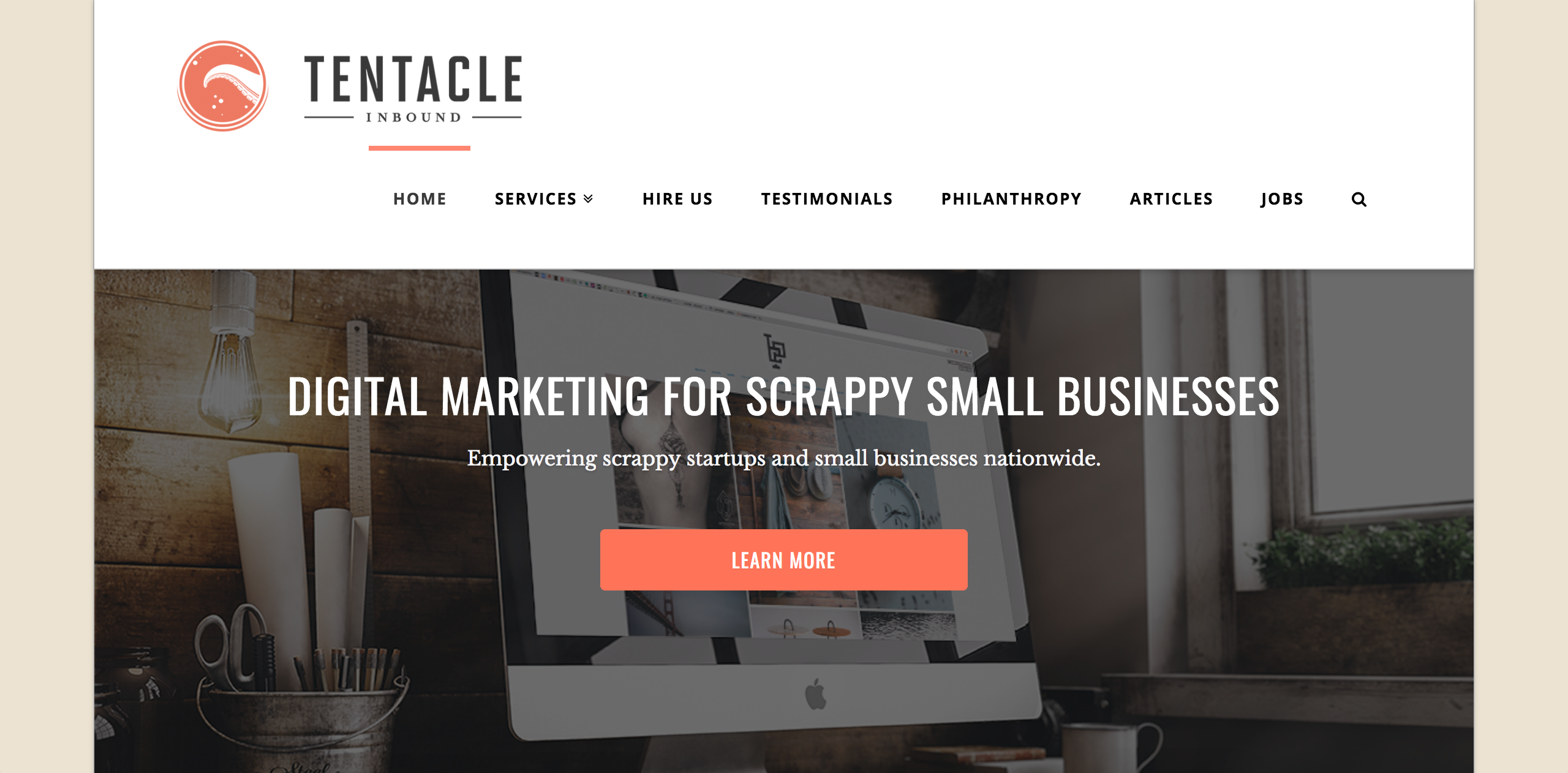
Megan:
First of all, I love the idea just as a personal growth idea or career growth idea to be like, I want to learn more about this area. Let me start a business that does it. I think that’s really smart. Also, I love getting into local SEO. I feel like there is just such an interesting difference between the national and the global brands and what they’re doing, and then the corner store or the local restaurant. I agree. I think a lot of times, they just don’t have the bandwidth to learn and stay updated, or they might not have the money or they might not know who they’re supposed to hire. I do agree there are so many people out there that will just be like, oh, $500 a month? I’ll get you to rank, and they might do some pretty shady things. You help national brands by day and local businesses by night. Sometimes, they’re often competing for the same space in SERPs. What would you say is the toughest local SEO challenge for each, for national brands and for local businesses?
Heather:
In my personal experience, my national and enterprise global clients are so dramatically different from the small businesses I’ve helped in the past. I don’t find them competing often at all. Just different types of businesses, different level of competition. I know it exists. Enterprise versus global, it totally exists, but that just wasn’t the world I was living in at the time. If the question is, what’s the toughest local challenge for enterprise businesses, the toughest local search challenge for enterprise level global international businesses is to see themselves as local brands. I think they see themselves, and rightly so, as these household name behemoths. Sometimes it’s even hard to explain why search is necessary, much less local search.
A lot of times, we find ourselves flipping that thinking on its head and reminding these enterprise brands, hey, people engage with your brand on a local basis. This is a one-to-one conversation. A one-to-one relationship that you have to nurture, and from MozCon local, my example was, when somebody walks into a Starbucks and orders a latte, they’re not ordering that latte from 25,000 stores. They’re ordering from one store, one person. Helping brands see themselves in the local context and connect those local people to local sales or local relationships that fuel the larger business is super important. The execution of search is not the problem. It’s changing the thinking around search and local search for enterprise brands.
Megan:
Yeah. For them, it’s more about helping them understand how small, because they’re thinking so big. They’re thinking so much at scale. It’s helping them understand that individual experience. That makes a lot of sense. What would you say about for small brands? What is a big challenge that they often face?
Heather:
As it pertains to local search, or search in general?
Megan:
Either. Both.
Heather:
The small businesses face a lot of challenges. Of course, the usual time, money, resources, are very high up on the list. They’re trying to do a lot of this stuff by themselves, and that’s very challenging. More than anything, it’s just knowing where to prioritize their search efforts. I think we do a disservice to small business clients when we come to them and say, you should be doing all the things. Every single thing. All the search stuff. But we don’t do anything to help them prioritize what’s going to have the greatest effect.
If I had a small business client with brick-and-mortar locations where they’re trying to drive foot traffic, of course, I would probably prioritize local search efforts. But if I’ve got a client who’s exclusively online, then local search doesn’t make sense for that brand. I need to find the areas that they really can win. The other thing is just, I said that enterprise and small business in my world typically don’t compete, but I guess I should rephrase, because these small businesses are to some degree competing in search results for terms that national brands are going to care about as well.
So, how do you help this tiny brand, tiny small business and its town on the other side of the country make a splash when people with a lot more money and a lot more resources and much bigger name are taking up so much space in the search results? I think doing that actual human thought, the extra work, to figure out what incremental gains and small wins can you get for a small business client, which are really big wins to them. You have to think differently about enterprise versus small businesses in search. I think you have to be scrappy in both, but you have to be especially scrappy and resourceful when you’re a small business with almost no resources. It’s all about prioritization and picking where you’re going to be not only make an impact, but acquire and retain some kind of competitive advantage.
Megan:
Finally, I love to ask each guest about their own hometown. Can you tell me about Kansas City? Are you from there? If not, what drew you there and what keeps you there?
Heather:
Sure. I am born and raised in Kansas City. I grew up in a small suburb of Kansas City called Grandview, which is south of the metro. Blue collar town, very diverse city to grow up in. Got my journalism start there, working on the high school newspaper as editor-in-chief my junior and senior year. Very cool. Kansas City, we are known for our beer with Boulevard Beer. Great brewery here. Barbeque, of course. If you check out search volume on Google trends, you will see that Kansas City is the leading source of barbeque search in the United States, but also the best barbeque. We’re known for baseball. Of course, we’ve got our Kansas City Royals. Big fan. World Series winners two years ago. Great.
And jazz. We’ve got a very long and storied history of jazz in Kansas City. So, Charlie Parker spent a lot of quality time here in Kansas City, for example. We have the historic 18th and Vine district where you can go to the Kansas City Jazz Museum or the Negro Leagues Baseball Museum and learn about some of that history. There’s this great jazz bar in town called the Green Lady, and there’s several others as well. Jazz is alive and well in Kansas City and we have a wonderful history that everybody should take the time to learn about. It’s not just a cow town. That’s just part of who we are. There’s so much more to that, too.
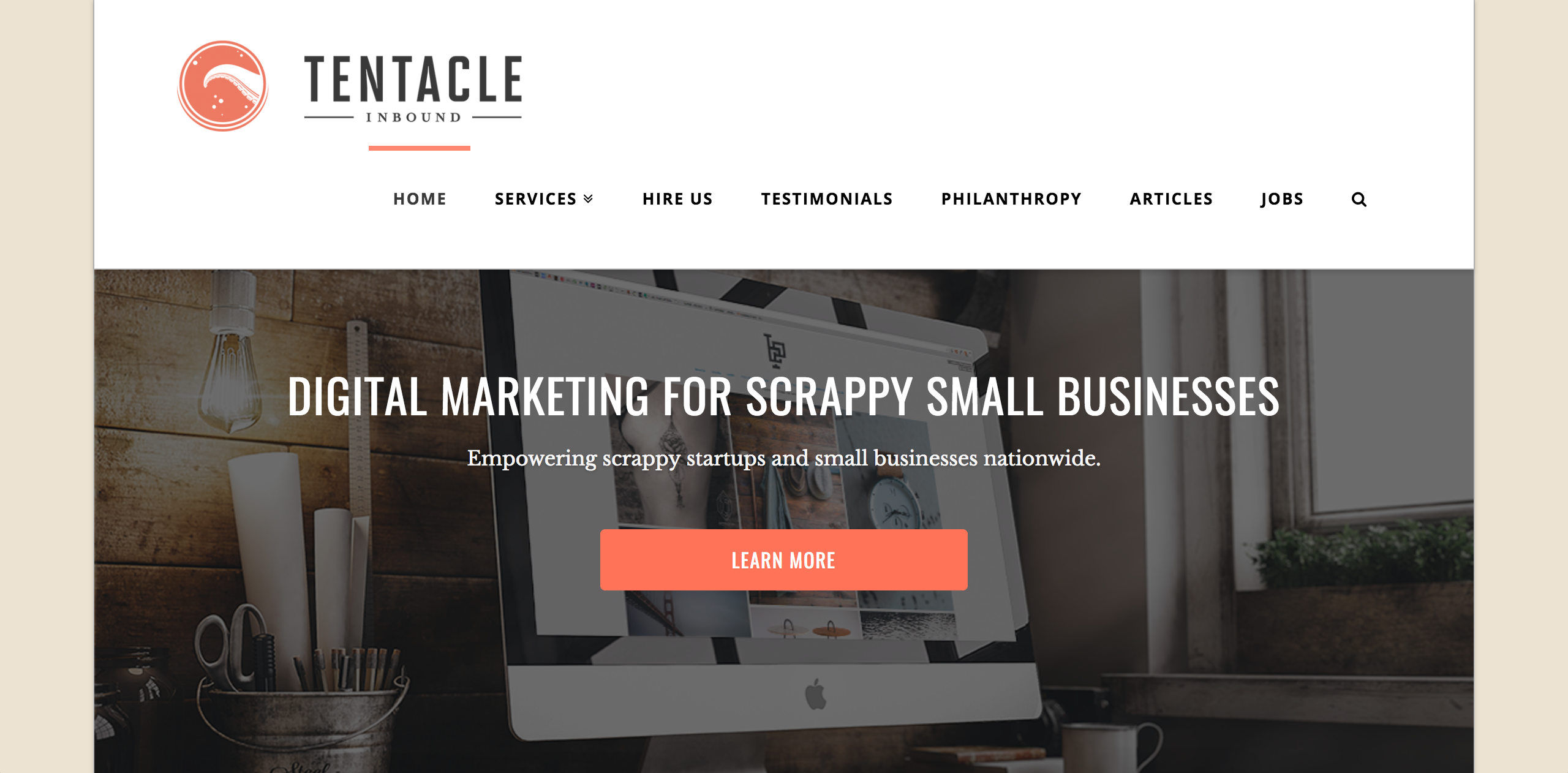
Megan:
I love the idea of the Green Lady—I didn’t know that there was a lot of jazz in Kansas City. I feel like you think New Orleans or you think other cities, but that’s so cool. I love that.
Heather:
We are a jazz city.
Megan:
Jazz and barbeque. That’s the whole day. Just eat barbeque and then go listen to some jazz music.
Heather:
We have so many good things.
Megan:
If a business came to you, let’s say a national business wanting to market to specifically in the Kansas City area, how would you advise them? What is it that you think particularly appeals to people in Kansas City?
Heather:
Are you asking how I would tailor a search strategy to a local brand in general? Or how would I appeal to Kansas Citians with a brand?
Megan:
More how would you appeal to Kansas City with a brand.
Heather:
I don’t know how to answer that without knowing the brand. Everything’s so custom tailored to every single client, and I try to find that nexus of where they match up with the community and who they are and their needs and interests. Without knowing what makes that business unique and how they can serve the city, I have a hard time answering that question. How do other people answer this question?
Megan:
Sometimes I get a mix. That’s a good answer as well. Yeah. I don’t know. I guess maybe the spirit of the question is more, what is the driving thing that makes people in Kansas City unique? I would agree. I think it probably depends on the brand as well.
Heather:
What makes us unique is, we’re really nice. We’re so nice, we might be close relatives of the Canadians.
Megan:
If I go and have barbeque and listen to jazz music and then I’ll also be surrounded by really nice people, that sounds like—
Heather:
Yeah. If you like to be surrounded by nice people, Kansas City will be here. I hear a lot, I’m a bizarre person in New York because I’m smiling and nodding and people and they’re looking at me like I’m a freak of nature. I come back to Kansas City and everybody smiles and says hi, good morning, holds the door. Everybody’s really friendly here. Maybe I’m naïve and sheltered, but I think that people are nice because Kansas City is nice.
Megan:
Yeah. I live in the South, so there’s a similar culture of acknowledging random strangers that’s not awkward. I have the same problem when I go to a big city. You smile at someone and they just look at you and you’re like, oh. Then, it’s even worse when you go abroad. In France, people really don’t smile at strangers on the street.
Heather:
I know. Parisians hated me. They hated me.
Megan:
You’re like, oh right. I’m in Paris. We don’t do that. Always just walking, I’m really chill face, but not smile.
Heather:
In their defense, they see a million tourists a day. Kansas Citians definitely don’t. Maybe that’s it.
Megan:
Yeah. Good point. Well, Heather, thank you so much for taking the time to talk to me today. Again, I loved your presentation as MozCon local, and I’ve loved diving deeper into your thoughts on national brands and local brands when it comes to search. So, thank you so much.
Heather:
Well, thank you so much for being there and for the opportunity to chat more. Love it.
